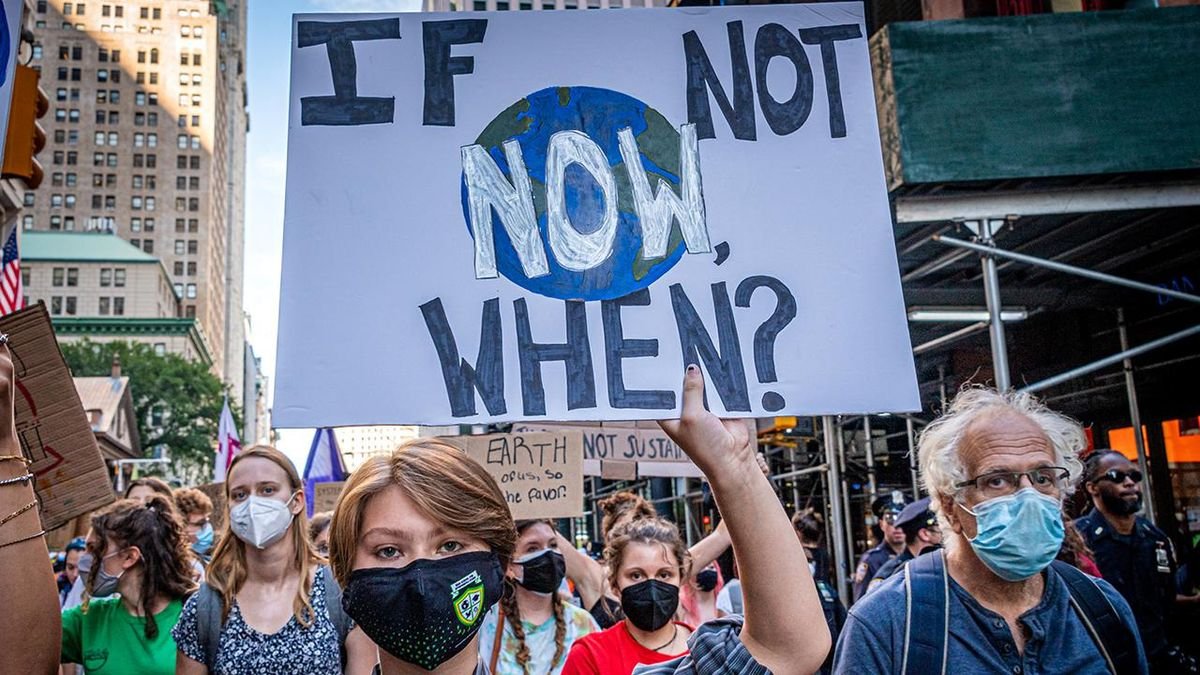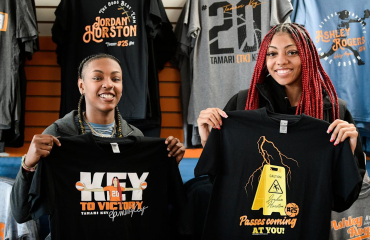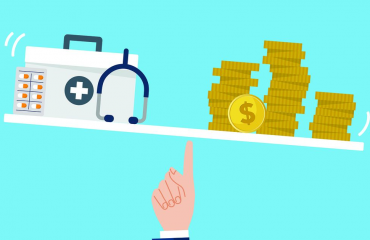8 Eco-Friendly Lifestyle Resolutions for the New Year – EcoWatch
This website uses cookies to ensure you get the best experience while browsing it. By clicking 'Got It' you're accepting these terms.
Join the eco-revolution in 2022.
As we welcome in the new year, many are thinking about resolutions – for ourselves, our families, our health, our lifestyle. Now more than ever, it's important to include the planet in our plans. Over the past 50 years, humans have more than doubled our consumption of natural resources, particularly in the United States.
Losing our resources is directly linked to our own health as well, as the World Health Organization reports that 13 million deaths annually and nearly 25 percent of disease worldwide are due to environmental causes. Climate challenges impact health issues like asthma, cardiovascular disease and stroke.
So, how can you do your part and live your best life while ensuring future generations will be able to live theirs?
Buying food locally will decrease costs and environmental impacts like production, processing, packaging and transportation. If you buy local food, not only will it be more fresh and packed full of nutrients, but you’ll also be saving the world from unnecessary fossil fuel use and excess packaging that will end up in a landfill.
Food that has to travel thousands of miles to reach your community has a large carbon footprint, due to plane travel, boat travel and truck trips. Buying locally ensures you reduce that impact while also supporting your area and its workers.
Meat production, specifically, destroys our environment by using massive amounts of water, polluting the air, emitting greenhouse gases and pulverizing natural wild habitats. This is why reducing your meat consumption is one big way to help the planet.
But it’s not just farm animals we need to be wary about. Seafood should be caught wild and not overfished. Avoid fish that comes from overpacked, farmed fisheries.
And no matter what you are eating, make sure you eat all of it. Nearly 40 percent of food in the U.S. goes to waste. Plan your shopping so that you consume all you purchase for more sustainability.
This year, when you think about filling your plate, choose foods that support rural communities, give animals a good life, provide farmers with fair pay, don’t include additives, and don’t harm the environment.
With populations soaring, water use and demand is at an all-time high. And it’s not only dry, arid areas experiencing water shortages. In recent years, there have been shortages in suburbia as well, and even metro areas. Lawn maintenance, golf course production, and even use within the home, can cause shortages in your own neighborhood.
One weird way to combat this, resolution style, is to upgrade your yard and driveway with permeable pavements. These have porous surfaces, which catch rainwater and runoff, store it in their reservoir and slowly allow it to travel back to the soil. This establishes a hydrological balance, and reduces runoff volume, which increases ground water amounts and retention.
Other than that, shut water off between uses, hand water your lawn sparingly without an irrigation system, minimize your laundry by wearing clothes and using towels more than once.
Fast fashion results in cheap, throw-away clothes which litter our landscape and don’t break down. Making these garments creates a carbon footprint, through pollution produced during manufacturing. The fast fashion industry also fuels a human rights crisis —the cheap garments come at a heavy cost.
Before you buy something new, ask yourself if you actually need it, and if you do, does it need to be new, or can you buy a gently used version?
In 2022, we’re looking at more electric cars on the road than ever. If you’re still driving gas, consider an upgrade because, as we know, car emissions are not only polluting the air at advanced rate, they are also warming the planet and atmosphere. They are also incredibly bad for our health, causing diminished lung function, asthma symptoms and cardiac problems.
While the federal government works to put laws into place to curb this pollution, you can change your own transportation choices. Cycle to work, or walk, and if you are too far, try using public transportation, carpools or working from home if it’s available.
If you do have the means to go hybrid or electric, you’ll save money on gas, in addition to minimizing your carbon footprint.
Green isn’t just for cars. Sustainable homes will cost you less money in the long run and help save our planet. To save energy around your house, make sure it is well insulated. While it will cost a little upfront, you’ll save on heat and air-conditioning too. Set your heat and cooling on only when you are home. Waterproof your home with caulk, seals or weather strips. Aerate your shower heads and faucets.
Consider vertical gardening for the outside of your home. Plants purify the air and reduce the ambient temperature. They also act as sound barriers. Homes surrounded by plants use on average 1/3 less air conditioning, too.
Do you really need to carry your groceries in a plastic bag, or sip that smoothie through a plastic straw? Nearly 50 percent of the solid waste worldwide is from single-use plastics.
Right now, plastics are swirling in our oceans, making up 40 percent of the sea surface. Thousands of marine creatures die by ingesting it or getting tangled in it. Seventeen billion pounds of plastic continue to leak into our waterway every year. And it never goes away.
But there are easy alternatives that can change your life in the new year. Beeswax wraps and bamboo cutlery are more easily degraded and reusable bags and water bottles could cut our waste down by a lot. Every year, 500 billion plastic bottles are sold. Imagine if they weren’t.
In the 2020s, it’s impossible to imagine life without electronics and the information highway they allow us to access every day. But electronics have a negative impact on our health and our environment. Making them and shipping them creates industrial waste and uses massive amounts of water and energy. When we are done with them, if we throw them out, they end up in a landfill where their batteries and other hardware can leak toxins into the soil. To ensure safe disposal, hand your old electronics back to specialized centers that will recycle them, or return them to the original manufacturers.
One of the biggest ways a single person can make a difference is by making their voice heard in their government, where decisions are made on a large scale for entire populations. Vote for representatives and leaders who will enact strong environmental legislation that will be sustainable for decades to come. Invest in future education, and policies that limit greenhouse gas emissions, protect wildlife, and solidify family planning services.
And don’t let it end with your vote. Follow up with your politicians in office. Remember, they were elected to serve you, and they base their decisions off what they think their constituents want.
This year do your best to join the eco-revolution. Remember that corporations and governments hold the greatest responsibility and the greatest ability to shift the planet away from climate destruction. However, with enough individuals making climate-forward lifestyle changes, we can reach the point of critical mass and potentially sway global leaders in business and government to change for the better as well.



